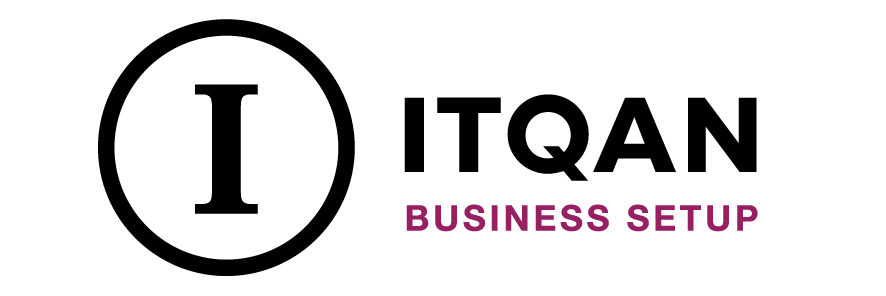
01 May Establishing a company in the Dubai International Financial Center Free Zone
This article aims to explore the process of setting up a company in the DIFC Free Zone in collaboration with Itqan. The article will provide comprehensive information about the steps and requirements needed to establish a successful company in this exclusive financial region.
The article will examine the types of companies that can be established in the DIFC, including local companies, international companies, financial companies and technology companies. The article will also include the legal and administrative procedures required to register and register the company, the financial requirements and documents required.
In addition, the article will review the benefits of establishing a company in the DIFC, such as advanced infrastructure, flexible financial laws, government facilities, and access to a wide network of global companies, investors and clients.
Through its partnership with Itqan, the article will provide tips and guidance on how to facilitate the process of establishing a company in the DIFC Free Zone and cooperate with the company specializing in legal and financial consulting. The article will also discuss the main factors to consider when choosing the type of company, estimating costs and determining the investments required.

Establishing a company in the Dubai International Financial Center Free Zone
Types of entities registered in the DIFC:
- Limited Limited Company (LTD) – Limited limited company is allowed to raise capital by offering shares in the form of an IPO and can also issue securities. It is considered necessary to have at least one shareholder.
- Limited Liability Companies (LLC) – A limited liability company is not subject to DIFC regulations and does not issue securities. It is considered necessary to have at least one shareholder.
- Recognized Companies (RC) – A RC company is a registered branch of a foreign company already located in the DIFC. A recognized company is not considered a separate legal entity; Rather, it is merely an extension of a company established abroad.
- Limited Liability Partnership (LLP) – This partnership is held by two or more people, all of whom are part of this partnership. Members’ responsibilities are limited to the extent of their contribution to the partnership.
- General Partnership (GP) – This partnership is held by two or more persons, and all partners are jointly and severally liable for the debts and obligations of the partnership.
- Limited Partnership (LP) – This partnership is held by two or more people, and must include at least one general partner whose liability is unlimited, and one partner whose liability is limited to his contribution to the partnership.
- Special Purpose Companies – According to their charter, these companies must be licensed to operate under the umbrella of the DIFC Authority.
- Limited liability companies, public companies or limited partnerships that are already in place can be registered in the DIFC.
- The DIFC Authority allows foreign companies to relocate to the DIFC (provided that the foreign company is authorized to do so in accordance with the laws of the jurisdiction of incorporation).
- Non-regulated entities are those that are established in the DIFC but are not engaged in the carrying out of a financial service (as defined in the DFSA Regulations) or are not subject to one or more of the exemptions set out in the DFSA Regulations Finance. Examples of such entities include: holding companies, companies investing in real estate, companies carrying out support and technical support activities, and service providers such as employment agencies, restaurants, cafes and bars.
Steps to establish a company in the Dubai International Financial Center
Determine the type of activity
Identifying the activity is the first step to obtaining a business license. Through the activity, the parties associated with this activity and the permitted legal forms are identified.
The legal entity of free zone establishments in the country takes one of the following two types:
- Free zone limited liability company
- Free zone establishment
The difference between the two types lies in the number of shareholders and the nature of the shareholder, whether a natural or legal person. Not all free zones are obligated to register these two types of establishments.
Therefore, we advise the investor to refer to the body responsible for managing each free zone separately to inquire about the legal structure available for the type of activity that he wants to practice.
The Dubai Multi Commodities Center allows the establishment of a limited liability company, which takes the form of a subsidiary wholly affiliated with a local or foreign company.
Branches of establishments in free zones
Existing local and foreign companies can establish branches in other free zones.
Capital requirements
Capital requirements in free zones in the country vary depending on the region and activity.
Choose a trade name
When determining the type of legal entity for your business activity, you should also think about choosing a trade name that is appropriate for the activity.
In most cases, you must refer to the relevant free zone authority, or the relevant Department of Economic Development, to find out the authorized trade names and whether the name intended by you has been previously registered by a company.
On the other hand, the Departments of Economic Development require certain conditions to approve a trade name, including:
- It must not be contrary to public order and morals
- It must be followed by something indicating the legal entity of the company, such as: (LLC, PJSC, PJSC, FZE, FZE)
- Must not be registered or used for the same or similar type of activity
- It must comply with the nature of the activity and the required legal form
- It must not include sectarian or sectarian names, the names of the ruling authority, or the names and logos of local, Arab and international bodies, institutions and organizations.
- It must not be identical or similar to a local or international trademark registered with the Ministry of Economy
Applying for a commercial license
The type of license you seek depends on the core activity of your business
Selection of offices and work facilities
In free zones, you can buy or rent office space, and office requirements depend on the number of employees and the type of business activity of the company.
Obtaining initial approvals, registering the activity and obtaining the license
Establishments established in free zones are subject to the laws and regulations that govern each specific free zone body or authority.
In order to obtain the necessary approvals, you must apply for the necessary documents. The list of documents varies according to the type of activity and the requirements of the free zone authority.
Below are general instructions on the steps and documents needed to obtain approvals.
Initial approvals
In order to obtain initial approvals, you need the following:
- An application form for initial approval, complete with the required data
- Action Plan
- A copy of the existing business license/registration certificate (for existing companies, this applies to local companies only)
- Color copies of the passports of the company’s shareholders, and the director or member of management appointed to the new company
- A signature form for both the shareholders of the company, and the director or member of management appointed for the new company
- Audited financial reports on the company’s budget for two years, or a reference certificate from each shareholder’s bank
- No objection letter from the current sponsor (for individuals)
- Title deed for the real estate unit
- Letter of intent
- A form with the commercial registry identification code for the manager/member of management (submit the original copy officially certified by a notary public)
The freelancer needs to provide a smaller amount of documentation, and in most cases must:
- Submit a registration request
- biography
- Reference letter from the bank
- A form with the commercial registry identification code (submit the original copy, officially authenticated by a notary public)
Establishment registration
After obtaining initial approvals, you must pay the registration fees and license fees. Fees depend on the type of license required.

Steps to establish a company in the Dubai International Financial Center Free Zone
Documents required to establish a company in the free zone
Documents required to establish a company in a free zone may vary slightly depending on the type of company and local requirements, but in general, the basic documents that are usually required when establishing a company include:
- Registration application form: It contains company details such as its name, type, objectives, and shareholder information.
- Company document (Memorandum of Association): defines the company’s organizational structure and the rights and obligations of shareholders.
- Articles of Association document: It specifies the rules and procedures for managing the company and details the rights of shareholders and directors.
- Power of Attorney: If there are legal representatives or lawyers who represent the company in legal proceedings.
- A copy of the personal ID or passport of shareholders and directors: to verify the identity of individuals associated with the company.
- Certificates of educational qualifications or experience of managers (if required): to confirm the technical competence of those responsible for managing the company.
- Lease contracts or title documents for head office: To confirm the location of the company’s headquarters.
- Required financial reports (if required): Usually required to confirm the financial viability and sustainability of the company.
How can you establish a company in the free zone?
Establishing companies in the free zones in Dubai is much easier than establishing a company inside Dubai, as it can be 100% owned by any nationality, and the presence of a partner or sponsor who is a citizen of the UAE is not required, as the company is registered as a free zone establishment or it is a company belonging to The free zone or a branch or representative office in the free zone in Dubai. In this case, it is possible for the main company to be outside the Emirates, and it is not required to be inside the Emirates. The companies located within the free zone are regulated through the authority responsible for the free zone, which is the one that issues any licenses to the company. This depends on the location of the free zone and the activity it carries out. The type of license issued by the responsible authority varies according to the commercial activity. A company can be established in the free zone by following some steps, including:
- Choose the company’s location
- Agreeing on the trade name, as it is the name that distinguishes one company from another.
- Obtaining the company’s business license.
- Obtaining initial approval to start work.
- Commercial license registration.
- Complete the requirements for a commercial license and obtain it.
Establishing a company in the free zone
The UAE is distinguished by the fact that it has more than 40 free zones in addition to some areas that are being established. Therefore, establishing a company in a free zone is one of the difficult matters facing the investor, as it is difficult to choose between many areas. Therefore, Itqan Company, through its great experience in business management, undertakes By helping many investors choose the appropriate free zone for their commercial activity, it also helps in establishing and establishing a company in the free zone in the shortest time and at the lowest costs.
Licenses necessary to establish a company in the free zone
To establish a company in the free zone, you may need the following licenses and permits depending on the type and activity you choose for your company:
- Commercial activity license: This license allows the company to practice its specific commercial activity, and varies according to the type of activity such as general trade, retail, professional services, and others.
- Head Office License: The company must obtain a license for its main location, which includes renting the place and approval from local authorities.
- Company license itself: The company obtains a license to establish and register it in the free zone of its choice.
- Business license: allows the company to employ employees and carry out commercial activities, and must be obtained from the relevant government agencies.
- Export/Import License (if required): If your company engages in international trade, you may need a license to import and export goods.
- Liberal professions license (if required): If you provide professional services such as medicine, accounting, or engineering, you may need a profession-specific license.
Advantages of establishing a DIFC company
- 100% retransfer of capital and profits abroad
- 100% exemption from import and export duties
- No tax is imposed on corporate gains or personal income in most cases
- No restrictions on the use of currency
- Low cost of operations
- Pre-built offices, factories and warehouses
- Fast establishment and licensing procedures
- Single window for customs clearance; That is, multiple administrative services in one station
- Provides labor recruitment assistance and additional support services, such as sponsorship and on-site housing
- Abundant and inexpensive energy
- Excellent infrastructure, communications, and attractive work environment
By concluding this comprehensive article about establishing a company in the DIFC Free Zone in cooperation with Itqan Company, we can confirm that this region provides an exceptional investment environment for startups and established companies alike. By leveraging advanced infrastructure, government facilities, and an extensive network of companies and investors, companies can achieve success and sustainable growth.
Itqan Company is considered a valuable partner in the company establishment process, as it provides specialized experience and knowledge in the field of legal and financial consulting. A company can benefit from Itqan’s professional consultations in all aspects of establishing a company, from providing advice on the appropriate type of company and choosing the legal structure, to the legal and administrative procedures necessary for registration and licensing.
Thanks to the Dubai International Financial Centre, companies established there enjoy numerous benefits such as access to global markets, flexible financial facilities, and advanced legal protection. Businesses can benefit from the great potential for growth and expansion in this prestigious financial district.
The most important frequently asked questions about establishing a company in the free zone
What are the basic steps to establish a company in the free zone?
The basic steps include determining the type of company, submitting the required documents, paying fees, and obtaining the necessary approvals.
How long does it take to establish a company in the free zone?
The time required to establish a company varies according to the type of company and administrative procedures, and can take from a few days to several weeks.
What are the expected costs of establishing the company?
Costs vary between types of companies and services provided, and include registration fees, legal services, and other government fees.
What are the taxes associated with companies in the free zone?
Free zone companies usually enjoy tax exemptions, but current tax laws should be checked.
Can I transfer my company registration to another free zone?
Yes, the company’s register can be transferred to another free zone according to the specified procedures.



